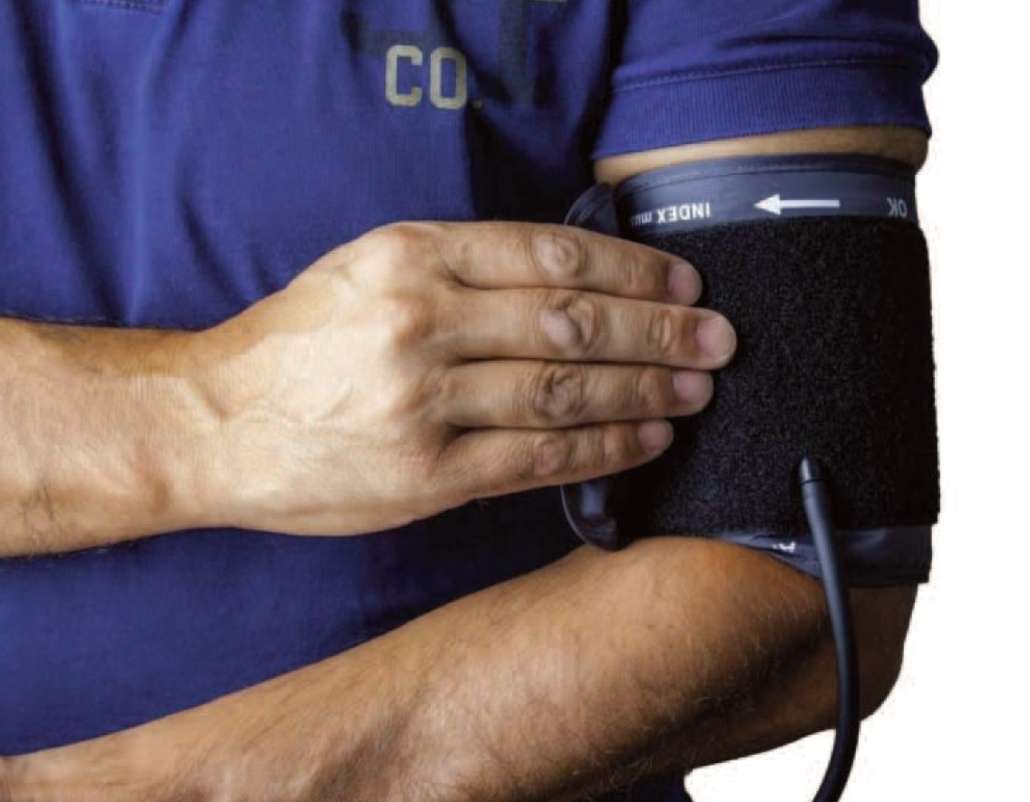FOR YOUR HEALTH: Understanding high blood pressure
 High blood pressure (HBP), or hypertension, increases the risk of developing cardiac (heart) disease. It can lead to stroke, heart attack, or heart failure. High blood pressure means high pressure in the arteries that carry blood from the heart to all the tissues and organs of the body. About one in three adults in the U.S., or 73 million people are though to have high blood pressure, but nearly one-third of the people don’t know they have it. High blood pressure is often called the “silent killer” because many times there are no symptoms, or the symptoms are so common that they could indicate another problem rather than hypertension.
High blood pressure (HBP), or hypertension, increases the risk of developing cardiac (heart) disease. It can lead to stroke, heart attack, or heart failure. High blood pressure means high pressure in the arteries that carry blood from the heart to all the tissues and organs of the body. About one in three adults in the U.S., or 73 million people are though to have high blood pressure, but nearly one-third of the people don’t know they have it. High blood pressure is often called the “silent killer” because many times there are no symptoms, or the symptoms are so common that they could indicate another problem rather than hypertension.
Common symptoms that could be a sign of hypertension are: headache, nausea, dizziness, blurred vision, shortness of breath, and kidney failure. A periodic blood pressure screening is necessary to detect this problem as, without it, high blood pressure may remain unnoticed for years or even decades, causing damage in the meantime. Teenagers and children can also have high blood pressure. Estimates are that about 2 million minors are affected by this disease.
Blood pressure levels and what they mean
Normal blood pressure: Below 120/80
Pre-hypertension: Between 120/80 and 139/89
High blood pressure: 140/90 or more
The top number is the systolic blood pressure, or the pressure in the arteries as the heart contracts and pumps the blood forward into the arteries.
The bottom number is the diastolic pressure, or the pressure in the arteries as the heart relaxes after the contraction.
Does high blood pressure lead to other diseases?
High blood pressure is not limited to increasing the risk of heart disease; it can also cause damage to other organs and increase the risk of kidney disease and damage to the eyes and brain. Damage to these organs is often called “end-organ damage” because the damage is the end result of having high blood pressure for a long time.
How can I control my blood pressure?
With proper diagnosis and treatment, high blood pressure can be controlled and some of the complications can be reversed. Diet and lifestyle changes may be needed to control the blood pressure, along with medications. Excessive alcohol or coffee consumption, smoking, a high salt intake, lack of regular exercise and obesity negatively affect hypertension.
Responsible journalism is hard work!
It is also expensive!
If you enjoy reading The Town Line and the good news we bring you each week, would you consider a donation to help us continue the work we’re doing?
The Town Line is a 501(c)(3) nonprofit private foundation, and all donations are tax deductible under the Internal Revenue Service code.
To help, please visit our online donation page or mail a check payable to The Town Line, PO Box 89, South China, ME 04358. Your contribution is appreciated!


Leave a Reply
Want to join the discussion?Feel free to contribute!